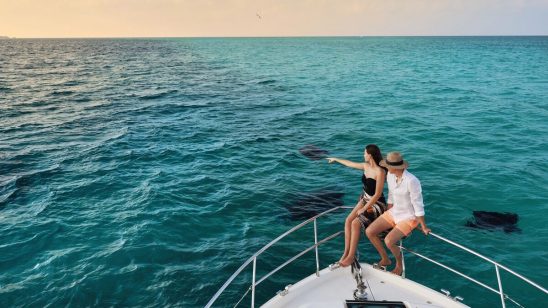
Maldives resorts face financial strain from strict currency exchange rules
The Maldives’ tourism industry which has still not fully recovered from the COVID epidemic is facing a significant hurdle due to a recent regulatory requirement imposed by the Maldives Monetary Authority (MMA) that mandates the exchange of USD 500 per tourist. This rigid policy has sparked widespread concern among resort owners, who argue that it is unfair and not feasible given the operating cost structure of the industry. This “one shoe fits all” approach that doesn’t not differentiate between resorts with different market positions and guest profiles has been demonstrated to be untenable for the majority of resorts in the country.
Maldivian resort operators are urging the Maldives Monetary Authority (MMA) to reconsider the regulatory requirement mandating each resort to exchange USD 500 per tourist, presenting data that underscores the operational difficulties and impracticality of this fixed exchange policy. With most resorts earning of their revenue in USD and facing substantial USD outflows, a percentage-based exchange requirement, such as 10% of USD earnings, has been proposed as a more viable alternative.
Financial Realities of Maldivian Resorts
For resorts in the Maldives, the primary revenue stream is in in US dollars, with majority of total earnings typically coming from international payments. Over 75% of Maldivian resorts operate with an Average Daily Rate (ADR) below USD 800, making the financial pressure of meeting a fixed USD exchange requirement particularly acute for these properties. Furthermore, the major categories of USD expenses, which are critical to operations, consume nearly all USD inflows:
- Taxes and Lease Rental: 25% of revenues
- Salary and Employee-Related Expenses: 20%
- Financing costs and Bank Loan Repayments: 20%
- Fuel Costs: 10%
- Food Supplies: 4%
- Maintenance: 5%
- Management Fees: 8%
With these costs accounting for over 90% of their revenue, the fixed USD exchange mandate forces resorts to source USD from external markets, often at higher costs, to meet operational needs. This strain ultimately impacts resorts’ financial stability, liquidity, and ability to honor contractual commitments.
Fixed USD Exchange Requirement: A Financial Burden
Forcing a fixed amount exchange rate is financially unsustainable, particularly for resorts with lower ADRs, which have much lower per guest incomes. Given that these resorts are already expending over 90% of their USD revenue on essential costs, a set amount per tourist does not take into account the varying financial structures and capacities of different resorts.
Instead, a percentage-based approach would be a fairer solution, alleviating the pressure on smaller resorts while still supporting the MMA’s objective of increasing local currency liquidity. Implementing a 10% earnings-based exchange requirement would allow resorts to comply without risking liquidity or resort stability, making compliance feasible across a diverse range of resorts.
Addressing Concerns Over a Percentage-Based Exchange Model
Critics may argue that using a percentage of earnings could allow resorts to underreport revenue, thereby circumventing the full intended impact of the policy. However, with over 60% of resort bookings coming from Online Travel Agencies (OTAs), transparency is achievable. OTA transactions provide MMA with clear insights into nightly rates and occupancy, making it difficult for resorts to misrepresent earnings accurately. The OTA-based booking data offers MMA an objective and easily verifiable mechanism for monitoring compliance.
Long-Term Implications for the Tourism Industry and Maldivian Economy
The fixed USD exchange policy, if maintained, could create ripple effects throughout the Maldivian economy. If resorts are forced to continually source USD at premiums, operating costs will inevitably rise, potentially leading to increased pricing, decreased reinvestment, and a possible decline in the quality of the Maldivian tourism experience. This could reduce the competitiveness of Maldivian resorts, especially as tourism destinations worldwide continue to expand and enhance their offerings.
Proposed Solution: A Percentage-Based USD Exchange Requirement
By transitioning to a 10% earnings-based exchange requirement, the MMA could strike a balanced approach that supports local currency reserves without compromising the financial health of resorts. A percentage-based exchange policy would also consider the varying capacities of resorts, leveling the playing field across the industry. This approach would:
- Align with Financial Realities: Resorts would have more predictable exchange requirements that are proportional to their earnings, reducing the strain on lower-revenue properties.
- Promote Compliance: Given the visibility of ADR rates through OTA data, it would be challenging for resorts to misreport earnings, facilitating fair and accurate compliance across the sector.
- Foster Sustainable Tourism: By reducing the need for resorts to tap into high-cost external USD sources, the policy would help stabilize the financial ecosystem within the industry, ensuring that resorts can continue to invest in service quality and infrastructure.
A Path Toward Financial Resilience in Maldivian Tourism
A collaborative approach between the MMA and resort operators is essential to address this issue. Moving toward a flexible, earnings-based model could relieve the undue pressure currently placed on resorts, fostering long-term stability within the tourism sector. Balancing the MMA’s objectives with a nuanced understanding of resort finances will ultimately create a sustainable policy that supports both local currency reserves and the operational stability of the Maldivian tourism industry.






